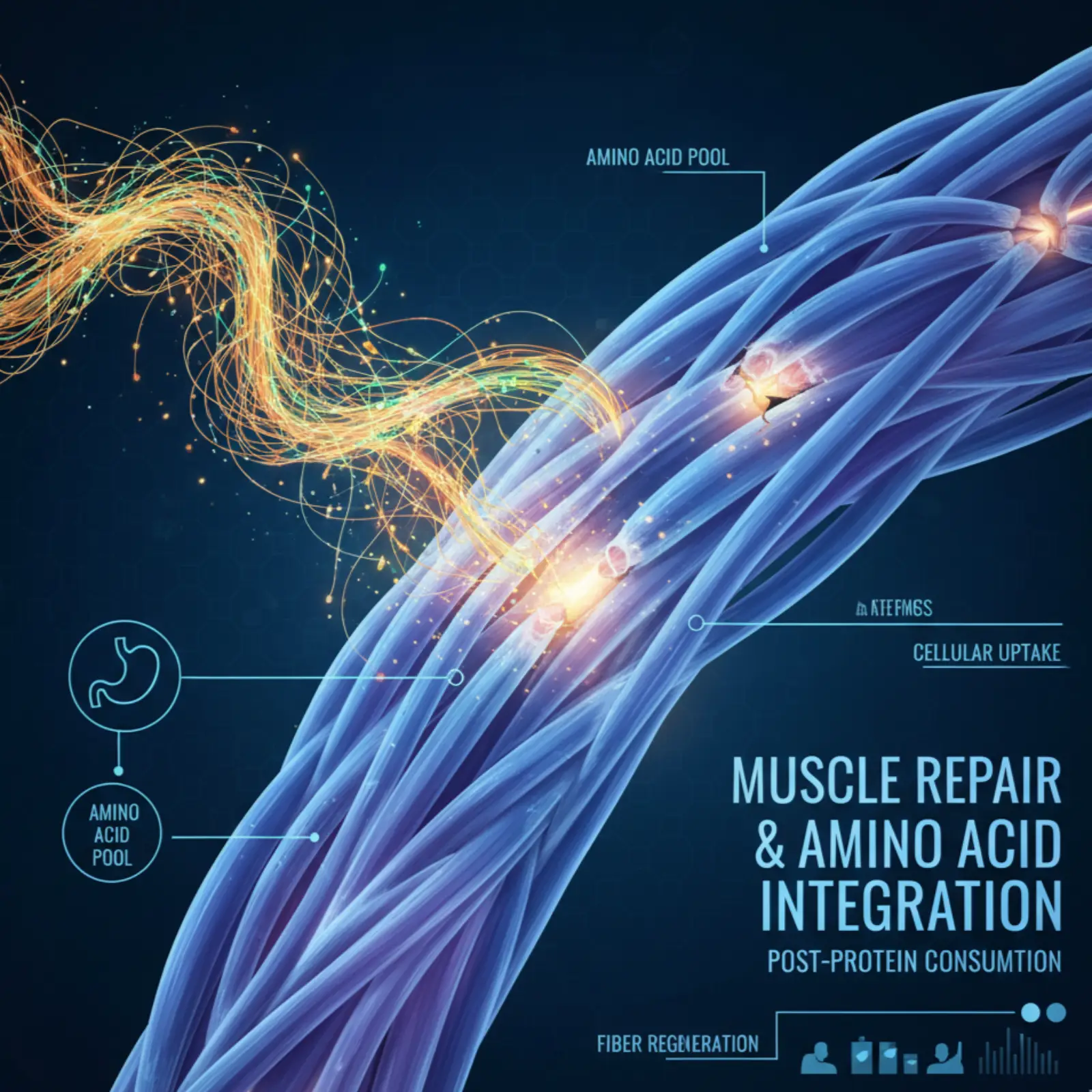When it comes to building muscle and speeding recovery, timing your protein intake may give you an extra edge. The debate over protein timing and recovery strategies—whether protein after workout, pre vs post workout protein, or nutrient timing—is still ongoing. Some athletes swear by the post-exercise anabolic window, while others argue that daily totals matter most. Recent research shows both perspectives have merit. This article breaks down the science, including studies on absorption, recovery supplements, and nighttime protein ingestion, so you can make smarter choices and fuel your training effectively.

Table of Contents
Understanding Protein Timing and Recovery
What Is Protein Timing and Why It Matters
Protein timing refers to the strategic scheduling of protein intake around exercise. The idea is to supply amino acids when your body is most primed for repair and growth. Since resistance training increases muscle protein breakdown, consuming protein around this time helps restore balance and supports net muscle gain.
Athletes often ask about the best protein after workout strategy. While timing is useful, remember that total daily intake remains the most important factor.
The Science of the Anabolic Response to Protein Ingestion
The anabolic response to protein ingestion is your body’s stimulation of muscle protein synthesis after consuming protein. For years, the belief was that a narrow “anabolic window” existed right after training. However, new research shows that the body remains receptive for several hours post-exercise, giving athletes more flexibility without compromising gains.
Pre vs Post Workout Protein
Pre-Workout Protein Benefits
Consuming protein before training can reduce muscle breakdown during intense sessions. A protein-rich meal 1–2 hours before training provides amino acids and improves recovery even before the workout ends. This makes pre vs post workout protein less of a strict choice and more of a lifestyle fit.
Post-Workout Protein and Recovery
Most athletes consume protein after workout because it quickly provides amino acids when muscle tissue is sensitive. Whey protein, known for its fast absorption, is especially popular here. Studies show that combining protein with carbs post-training can also restore glycogen more effectively.
Nutrient Timing Revisited
Is There Really a Post-Exercise Anabolic Window?
The paper “Nutrient Timing Revisited” challenged the strict 30-minute post-training rule. Evidence now suggests the anabolic window extends up to 2–4 hours post-workout. This means you don’t need to rush to your shaker bottle immediately after your last rep—though consuming protein soon is still beneficial.
Maximum Protein Absorption Per Meal Study
A maximum protein absorption per meal study shows that 20–40 grams of high-quality protein optimally stimulates muscle protein synthesis. Going significantly higher doesn’t increase growth but may support satiety. Splitting protein into 3–5 servings daily ensures continuous recovery.
Protein Timing and Muscle Growth
Optimal Protein Intake for Muscle Growth Study
A key optimal protein intake for muscle growth study suggests that 1.6–2.2 grams of protein per kg bodyweight per day is ideal for hypertrophy. Whether you’re a beginner or advanced athlete, this range ensures recovery and growth, provided it’s spaced throughout the day.
The Effect of Protein Timing on Muscle Strength and Hypertrophy (Meta-Analysis)
A meta-analysis examining timing concluded that while protein consumed around training is helpful, total protein intake drives most progress. The practical takeaway: timing can provide a small advantage, but consistency matters more.
Nighttime Protein Ingestion

Protein Before Sleep for Overnight Recovery
Research shows protein ingestion before sleep improves postexercise overnight recovery. Casein protein is especially effective because of its slow release. This supports continuous repair while you sleep.
Practical Timing Strategies for Evening Training
For athletes training in the evening, combining dinner with a casein shake can maximize overnight recovery. This ensures muscles stay fueled well into the night, reducing soreness the next morning.
Recovery Supplements and Protein
Protein Powders and Recovery
Recovery supplements like whey and plant-based powders provide convenient protein sources. Athletes choosing between whey vs plant protein should consider digestibility, amino acid profile, and dietary restrictions.
Beyond Protein – Supporting Recovery
While protein is vital, combining it with carbohydrates replenishes glycogen, and creatine enhances strength recovery. Electrolytes and hydration also play roles in reducing fatigue and supporting adaptation.
Practical Timing Recommendations
Protein for Different Training Goals
If the goal is fat loss, protein helps preserve muscle mass. For growth, spreading protein intake across meals optimizes synthesis. See protein for weight loss vs muscle gain for specific guidance.
How to Spread Protein Intake Through the Day
A practical approach is consuming 3–5 protein-rich meals, each with 20–40 grams. This ensures a steady stream of amino acids, which research shows is more effective than uneven large doses.
Common Myths About Protein Timing
Debunking the “30-Minute Window” Myth
The myth that you must consume protein within 30 minutes post-workout has been exaggerated. Modern evidence shows flexibility. Learn more in protein myths debunked.
Pre vs Post Exercise Protein Intake – Similar or Different?
Multiple studies show pre versus post exercise protein intake has similar effects on recovery and growth. The key is consistency, not the clock.
Conclusion
Protein timing is a useful tool but not the foundation of growth. Focus first on hitting your daily protein target—roughly 1.6–2.2 g/kg bodyweight. Then, strategically place protein before or after training, and consider a slow-digesting source before bed. Whether it’s best protein powder for beginners or whole food sources, consistency and quality will drive long-term results.
FAQs
Protein intake timing – does it really matter?
Yes, but not as much as total daily protein. Timing adds a small advantage.
What is the anabolic response to protein ingestion?
It’s the stimulation of muscle protein synthesis after consuming protein.
How much protein can the body absorb per meal?
Research suggests ~20–40g per meal is optimal.
What does the research say on protein timing and hypertrophy?
Meta-analyses show timing plays a minor role compared to daily intake.
Is the post-exercise anabolic window real?
Yes, but it’s longer than believed—about 2–4 hours.
What is the optimal protein intake for muscle growth?
Around 1.6–2.2 g/kg bodyweight daily.
Does protein before sleep improve recovery?
Yes, slow-digesting protein like casein supports overnight growth.
Pre vs post protein – which is better?
Both are effective; total intake is the key factor.
Visit my Instagram account for more
